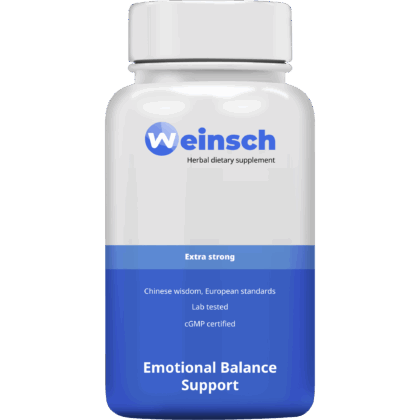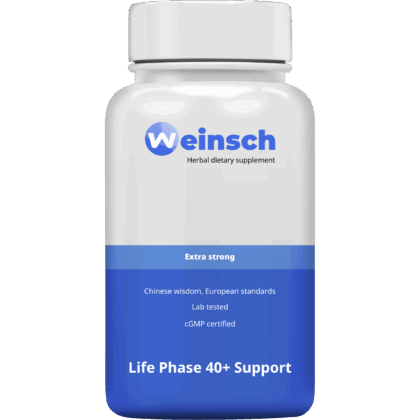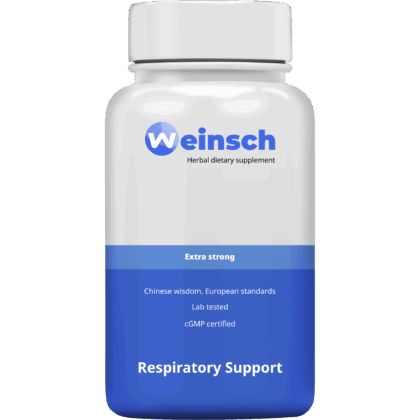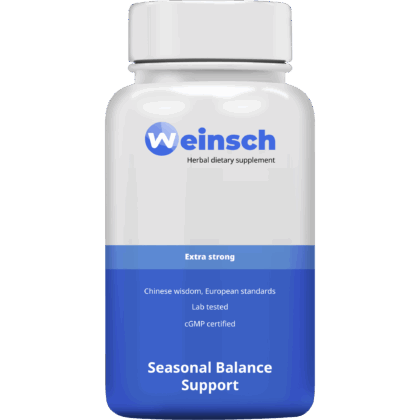Wu Wei Zi, also known as Schisandra Berry, is a well-known herb in Traditional Chinese Medicine (TCM) valued for its ability to tonify Qi, nourish Yin, and calm the mind. It is famous for its five distinct tastes: sweet, sour, salty, bitter, and pungent, which correspond to the five elements in TCM. This unique characteristic makes Wu Wei Zi a powerful herb in balancing and harmonizing various bodily functions.
Here’s a detailed breakdown of Wu Wei Zi based on TCM principles:
Introduction
Weinsch Wu Wei Zi is the fruit of the plant Schisandra chinensis. It is used to strengthen the kidneys, promote longevity, and improve mental clarity. Wu Wei Zi is especially useful in treating conditions of deficiency and for people experiencing symptoms related to stress, fatigue, and adrenal insufficiency.
Ingredients
- Wu Wei Zi (Schisandra Berry, Schisandra chinensis)
Functions & Indications
- Tonifies the Kidneys and Nourishes Yin: Wu Wei Zi is known for its ability to nourish kidney Yin, helping to restore balance in the body, especially when there is fatigue or weakness.
- Calms the Mind and Improves Mental Clarity: It is often used for anxiety, stress, and insomnia, as it has calming properties and helps to clear the mind.
- Boosts Qi and Energy: Wu Wei Zi is considered a Qi tonic, promoting vitality and reducing feelings of exhaustion.
- Supports Liver Health: It is also used in TCM to strengthen the liver, which is believed to be the organ responsible for the smooth flow of Qi in the body.
- Promotes Healthy Respiratory Function: Wu Wei Zi is often used for its ability to help with coughs and wheezing, especially when these conditions are related to deficiency.
Tongue & Pulse
- Tongue: The tongue may be pale or dry, indicating a deficiency in Yin or fluids, which Wu Wei Zi helps to address. A red tongue body may indicate internal heat that Wu Wei Zi can help balance.
- Pulse: A thin or weak pulse, especially in the kidney position, may indicate a deficiency that Wu Wei Zi can help to nourish and restore.
Related Concerns
- Kidney Deficiency: Wu Wei Zi is often used to address symptoms related to kidney deficiency, including fatigue, low libido, and frequent urination.
- Mental Fatigue and Stress: It is a common remedy for mental fatigue, overwork, and stress, helping to calm the mind and improve focus.
- Insomnia: Wu Wei Zi is included in many formulas to treat insomnia, especially when it is caused by a deficiency in Qi or Yin.
Clinical Applications
- Stress and Anxiety: Wu Wei Zi helps balance the body’s response to stress, making it useful for individuals suffering from anxiety, nervousness, or mental exhaustion.
- Fatigue and Low Energy: Wu Wei Zi is used in formulas to boost energy, promote vitality, and relieve symptoms of chronic fatigue due to deficiency.
- Liver and Kidney Support: It is commonly used to strengthen the liver and kidneys, particularly when there are signs of Yin or blood deficiency.
- Respiratory Issues: Wu Wei Zi is often used in TCM to treat chronic coughs, asthma, and other respiratory conditions linked to deficiency.
Side Effects
- Digestive Upset: In some cases, Wu Wei Zi may cause mild digestive discomfort, including bloating or nausea, especially if taken in large doses.
- Slight Dryness: It is important to balance Wu Wei Zi with other herbs that hydrate the body, as it can sometimes have a drying effect on the skin or mucous membranes.
Allergy
- As with any herb, individuals may experience allergic reactions to Wu Wei Zi, including rash, itching, or swelling. Those allergic to berries or plants in the Schisandraceae family should exercise caution.
Wu Wei Zi is often included in popular TCM formulas such as Sheng Mai San (for Qi and Yin deficiency) and Jia Wei Xiao Yao San (for stress and emotional balance).
-
Allergy Herbal Support Extra Strong 120 tablets 10:1 500 mg
€ 19,95 -
Emotional Harmony Support Extra Strong 120 tablets 10:1 500 mg
€ 19,95 -
Life Phase 40+ Support Extra Strong 120 tablets 10:1 500mg
€ 19,95 -
Menopause Mood Balance Support Extra Strong 120 tablets 10:1 500 mg
€ 19,95 -
Respiratory Support Extra Strong 120 tablets 10:1 500 mg
€ 19,95 -
Seasonal Balance Support Extra Strong 120 tablets 10:1 500 mg
€ 19,95 -
Weight Harmony Support Extra Strong 120 tablets 10:1 500 mg
€ 19,95







